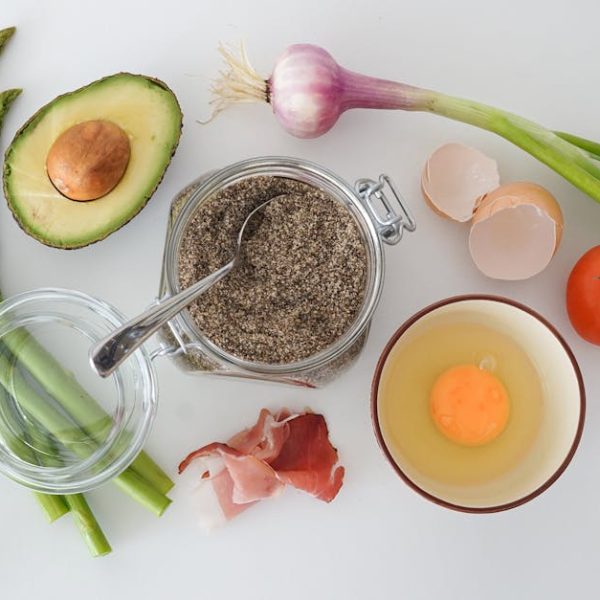Root vegetables are a powerhouse of nutrients and a versatile choice in cooking. Known for their development beneath the ground, root vegetables include those parts of plants which are located beneath the soil surface and contribute significantly to your diet by offering a variety of essential and beneficial nutrients.
Understanding Root Vegetables
Root vegetables, in essence, are the edible parts of plants that grow under the soil. They include a broad array of vegetables such as potatoes, beets, carrots, radishes, turnips, sweet potatoes, and many others. Their growth under the earth lends them a unique, earthy flavor and significant nutrient density.
Comparing these root veggies, certain differences can be noted like:
| Vegetable | Nutritional Value | Culinary Uses |
|---|---|---|
| Potatoes | High in Potassium, Vitamin C | Roasted, Mashed, Fried |
| Carrots | High in Beta-Carotene, Vitamin K | Soups, Salads, Stir-fries |
| Beets | High in Fiber, Vitamin B9 | Sautéed, Baked, Juiced |
The Nutritional Benefits of Root Vegetables
Root vegetables boast high levels of vitamins, minerals, and dietary fiber while also being low in calories. For instance, sweet potatoes pack a significant amount of vitamin A and fiber, whilst beetroot offers a cool mix of nutrients, including folate, fiber, and naturally occurring nitrates – compounds that can improve blood flow.
While these vegetables hold substantial nutritional profiles, it’s essential to retain these nutrients during cooking. Some best practices include:
- Steaming or boiling instead of frying to maintain nutrient integrity.
- Keeping the vegetable skin on where possible, as a high proportion of nutrients often reside just beneath the skin.
- Using the cooking water for soups or sauces to recoup nutrients that may have leached out during cooking.
How Root Vegetables Contribute to a Balanced Diet
Their nutrient-rich profile makes root vegetables a perfect element of a balanced diet. They offer complex carbohydrates, required for lasting energy, and their abundant fiber aids in digestion and maintaining a feeling of fullness – key for weight management. Moreover, their diverse types mean there’s a root vegetable to suit everyone’s palate.
To easily incorporate them into your everyday meals:
- Add them to your morning smoothie.
- Include them in your lunchtime salad.
- Make a hearty dinner with root vegetable-based soups or stews.
In the next section, we will look deeper into creative ways to add more root vegetables to your meals.
Creative Ways to Incorporate Root Vegetables into Your Meals
There’s no need to stick to plain boiled or roasted root vegetables; they can be incorporated into your meals in exciting and flavorful ways. Here are a few ideas:
- For breakfast, add grated carrots or sweet potato to your pancake batter.
- At lunch, mix roasted beets or radishes into your salads for a pop of color and flavor.
- For dinner, try a creamy carrot and ginger soup or a rosemary-infused roasted root vegetable medley.
- For a healthy snack, try oven-baked parsnip or beetroot chips – quick, easy, and delicious!
Remember, recipe innovation is key to prevent boredom and keep your meals fun and interesting. So, experiment and from time to time, try out new recipes which highlight the unique flavors of root vegetables.
Misconceptions and Facts about Root Vegetables
Some people might hold back from enjoying root vegetables based on common misconceptions, particularly about their starch content and potential contribution to weight gain. However, don’t let these misconceptions fool you – root vegetables are a nexus of nutrition and can positively enhance a balanced diet.
- Misconception 1: Root vegetables are high in starch and therefore, not suitable for weight management. Truth: While potatoes and some other root vegetables do indeed contain starch, they also offer loads of fiber which can keep you full and aid in maintaining a healthy weight.
- Misconception 2: Root vegetables are less nutritious compared to other vegetables. Truth: Root vegetables offer impressive levels of vitamins, minerals, and fiber. Their nutrient density should not be underestimated.
To put it into perspective, here’s a comparison table:
| Food Type | Average Caloric Content (per 100g) | Nutrient Density |
|---|---|---|
| Root Vegetables (carrots, turnips etc.) | 30-80 Calories | High |
| Grains (rice, wheat etc.) | 110-130 Calories | Moderate |
| Other Vegetables (spinach, broccoli etc.) | 20-50 Calories | High |
As the table above shows, while root vegetables may contain more calories than certain other vegetables, their nutrient density is similarly high, making them a fantastic choice for daily consumption.
Embrace the colorful world of root vegetables as a part of your balanced diet and enjoy a plethora of recipes they offer, simultaneously reaping their nutritional benefits. They’re a tasty and smart way to maintain a healthy lifestyle, so why wait? Start exploring these underground treasures right away!
Key Takeaway:
- Root vegetables, which develop under the ground, provide a large variety of essential nutrients, making them a valuable addition to any balanced diet.
- These vegetables are rich in vitamins, minerals, fiber, and complex carbohydrates and can be used in different forms in cooking.
- Root vegetables are not only versatile but also beneficial for weight management due to their high fiber content.
- Misconceptions about the high starch content associated with weight gain can be debunked with facts and scientific studies.
- Root vegetables are just as nutritious as grains and other types of vegetables, establishing their importance in daily meal planning.
These vegetables offer abundant health benefits and can add a delightful twist to your meals. Don’t let misconceptions deter you, but rather take advantage of the vast nutrient and culinary potentials these root vegetables present. Remember, staying informed and making smart food choices are steps towards a healthier, happier you.
FAQs
Q: How can I make root vegetables more appealing to kids?
A: Using creative cooking methods and presentation can make root vegetables more appealing to children. Try serving them in different forms such as purees, fries, or hidden in sauces and bakes to make them kid-friendly.
Q: Are root vegetables suitable for a diabetic diet?
A: Yes, root vegetables, especially those high in fiber, can assist in slow sugar absorption, making it a good option. However, it’s always advisable to consult your healthcare provider or dietitian for personalized advice.
Q: Can I substitute grains with root vegetables in my diet?
A: Root vegetables can provide a diverse nutrient profile similar to grains, but both have unique benefits. A balanced diet incorporating both grains and root vegetables can provide a wide spectrum of nutrients.
Q: What’s the best season to consume root vegetables?
A: Many root vegetables are available year-round, but certain varieties are at their best during fall and winter when they are naturally harvested.
Q: Are all root vegetables safe to eat raw?
A: While certain root vegetables like carrots and radishes can be eaten raw, others like potatoes and parsnips are better consumed cooked. Remember, each root vegetable has unique characteristics and optimal ways to consume.
Encourage readers to share this article to spread the benefits of root vegetables and delve deeper into other health-focused articles on the site.






